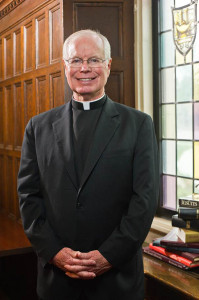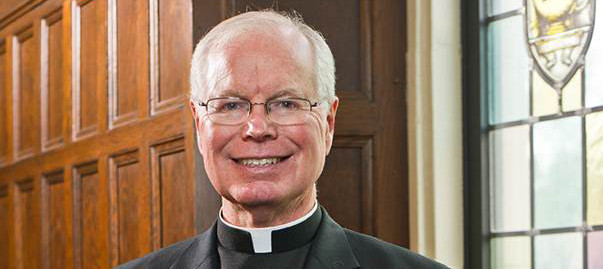
PHILADELPHIA — Jesuit Father C. Kevin Gillespie held his audience spellbound. The more than 200 people who crowded in to hear him were there to learn about addiction.
“Bringing Power to our Powerlessness” offered participants a mix of Alcoholics Anonymous wisdom and Catholic faith and practices.
Some, like a couple named Carol and Dave, had battled their own addictions and now were dealing with their adult children’s battles.
One nun, who came forward to ask a question, had to fight for composure. “We’ve got time,” Fr. Gillespie said as she fought back tears. Turns out she has teenage nephews who lost their mother to addiction. Now she’s worried that they will follow the same destructive path.
“Take that legitimate fear that you have and see if it can help you help them,” Fr. Gillespie said. He pointed out resources in the community such as the school, coaches and athletic programs where positive male role models could help direct energy toward more positive activities.
Fr. Gillespie used the metaphor of sowing and reaping to illustrate how faith and the 12 steps can work together in the process of recovery.
Sowing a belief and reaping a prayer comprised one such illustration. Believing in God’s merciful love and power and knowing that we are called to live in the pattern of Jesus. That means life, death and resurrection, Fr. Gillespie said. When we meditate on the Stations of the Cross, we see that Jesus fell three times. “He didn’t get up alone,” Fr. Gillespie said. Simon of Cyrene was there. This pattern of support helps us move forward as Christians.”
He also suggested meditating on Scriptures as a way to deal with addiction. Gospel passages such as the prodigal son and the woman at the well illustrate God’s mercy in powerful ways. Indeed, the Holy Family was likely well aware of the Psalms and other passages such as from Isaiah where God promises to be with us in times of trouble. We, like the Holy Family, need to ponder those words in our hearts and gain strength from them.
The healing, transformative power of the sacraments can also help those who are confronting addiction. In baptism, we are brought into the Christian community and become part of the body of Christ.
“Being a part of the body empowers us in our suffering,” Fr. Gillespie said. “We do not have to face these un-freedoms [of addiction and compulsion] alone.”
When we sow a virtue, we reap a character, Fr. Gillespie said. “Our characters grow when we confront a difficulty and master it. And, many people involved in 12-step programs support others who are going through recovery. In doing so, these “wounded healers” are finding healing themselves.
“Our common faith in Jesus Christ teaches us that we can receive by grace the power that was first unleashed by the life, death and resurrection of Jesus,” Fr. Gillespie said.
One man came forward and said he noticed that the priest’s Power Point presentation did not include a reference to the Sacrament of the Sick. “Was that deliberate?” he asked.
Not at all, Fr. Gillespie said. “The sacrament of healing is not just for if I am in the hospital having surgery on the heart. It’s very appropriate” for dealing with addiction.
One woman said she met her husband when he was five years sober and he introduced her to the 12 steps. She admitted she’d spent years battling a food addiction that had her on the streets in her pajamas looking for a 2 a.m. sugar fix. She offered to speak with anyone who was at the presentation and needed support.
Her husband said God used the 12-step program to help get him back to his faith. Fr. Gillespie said it was stories like his that encouraged others. “When you hear people’s stories, that gives us the idea that ‘Yeah, I can do it.’ Thank you for your witness of faith.”
Follow Joyce Coronel on Twitter at @JoyceCoronel.







